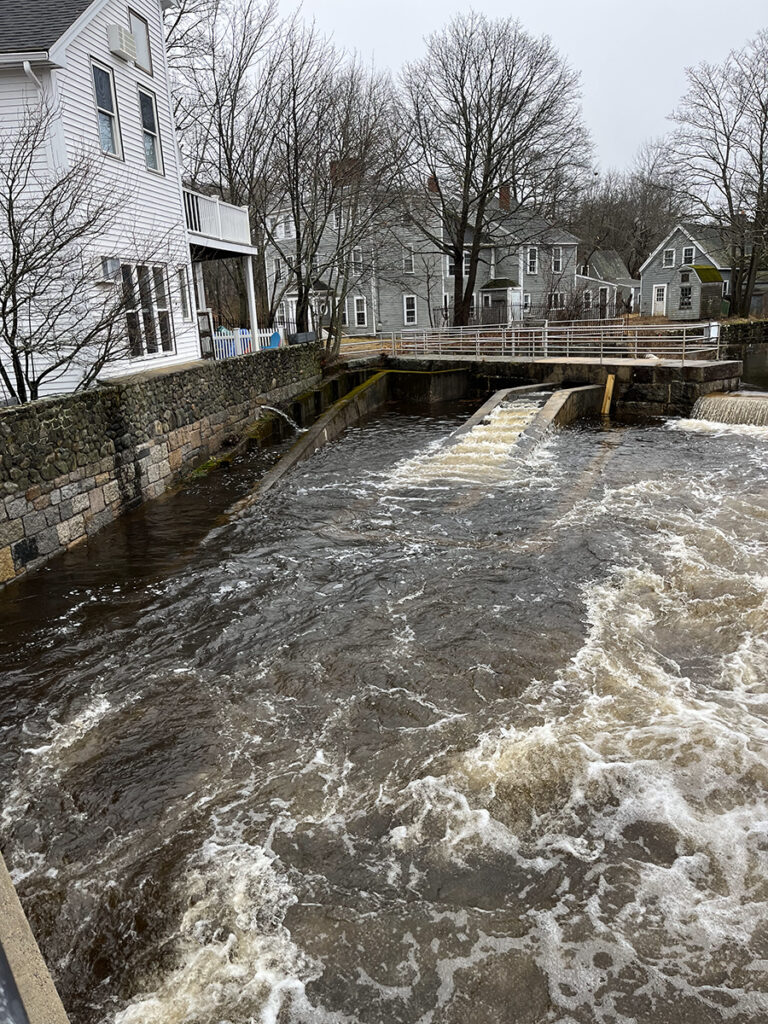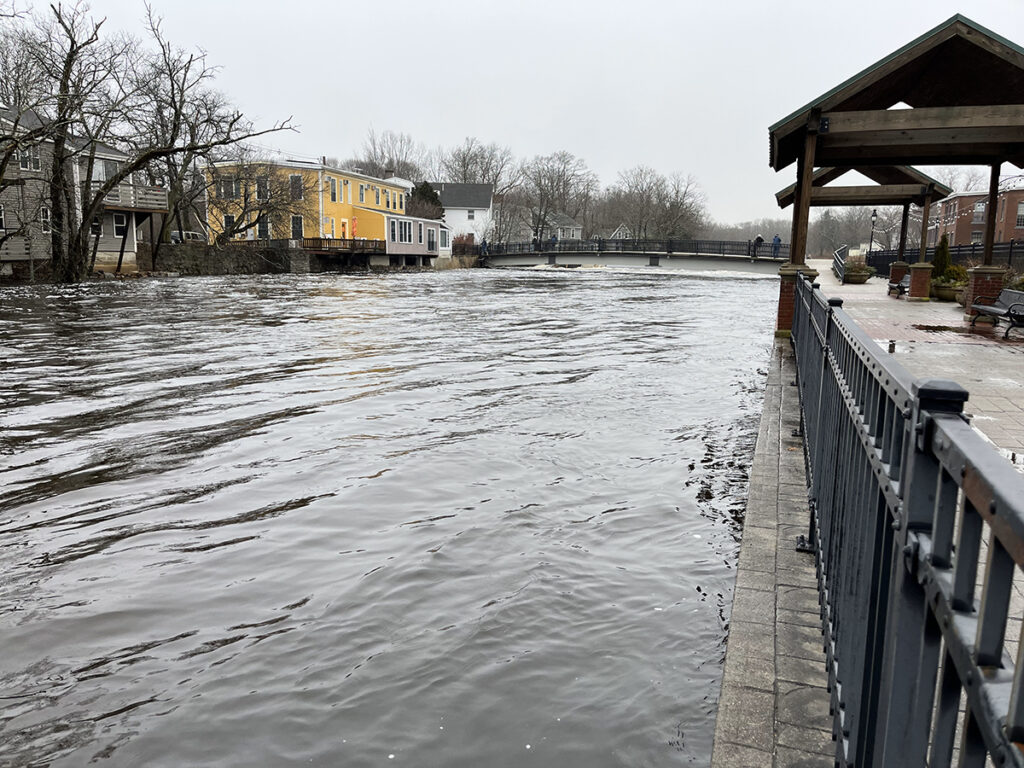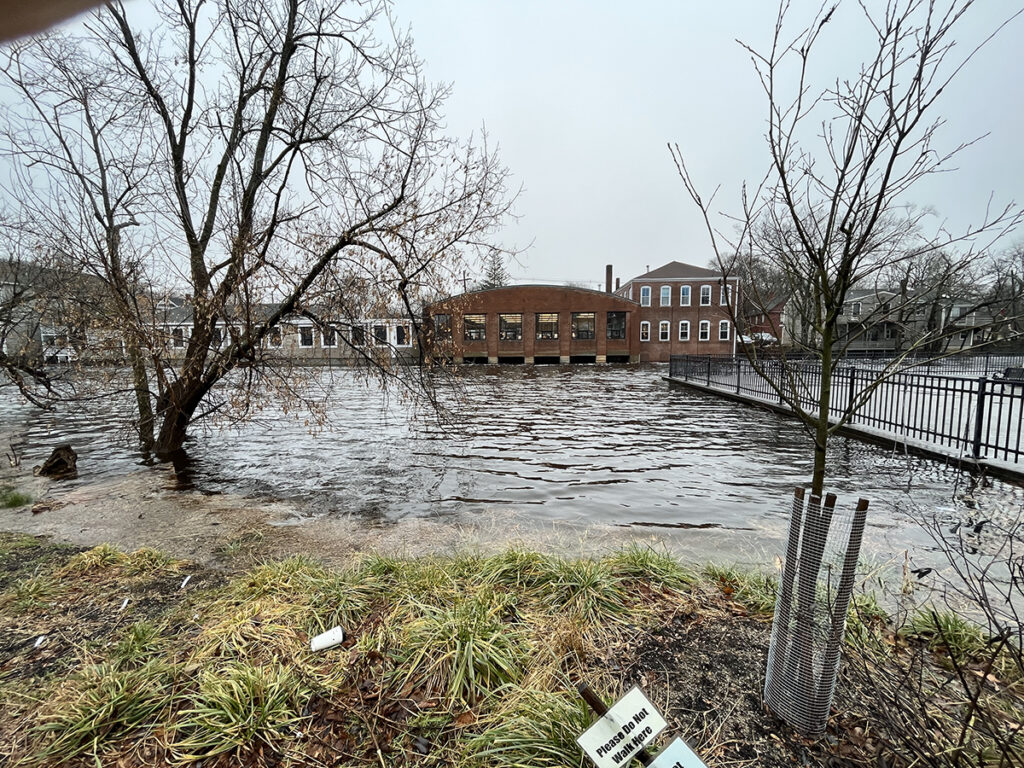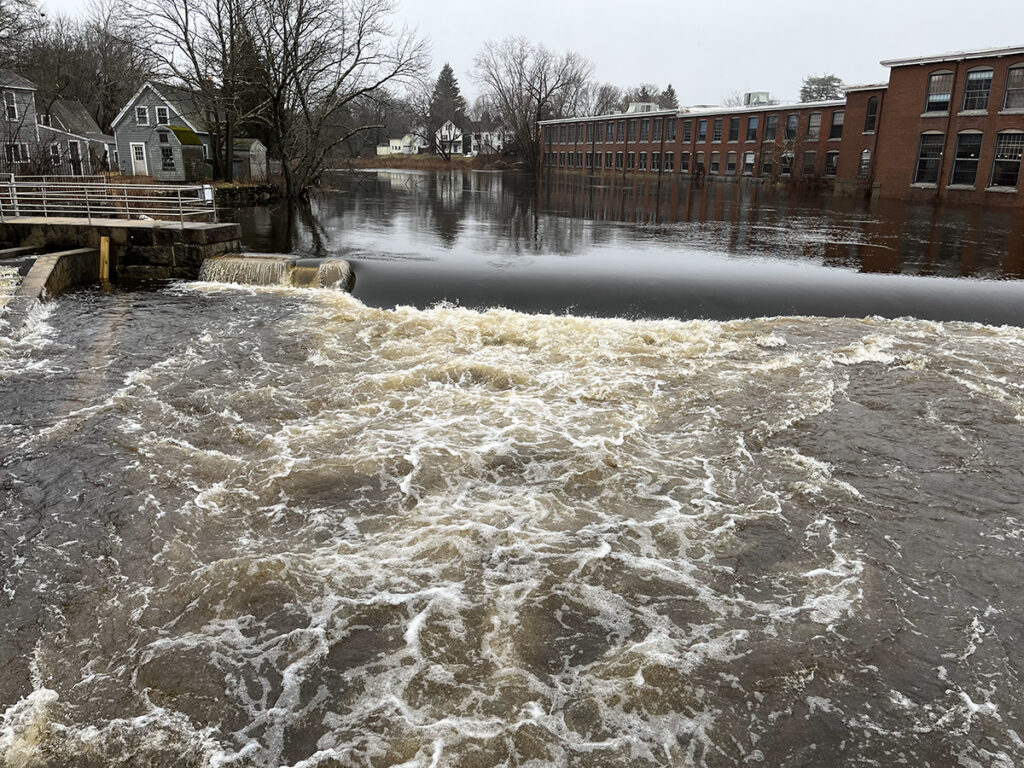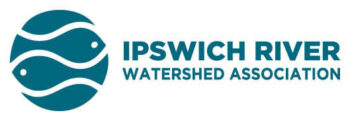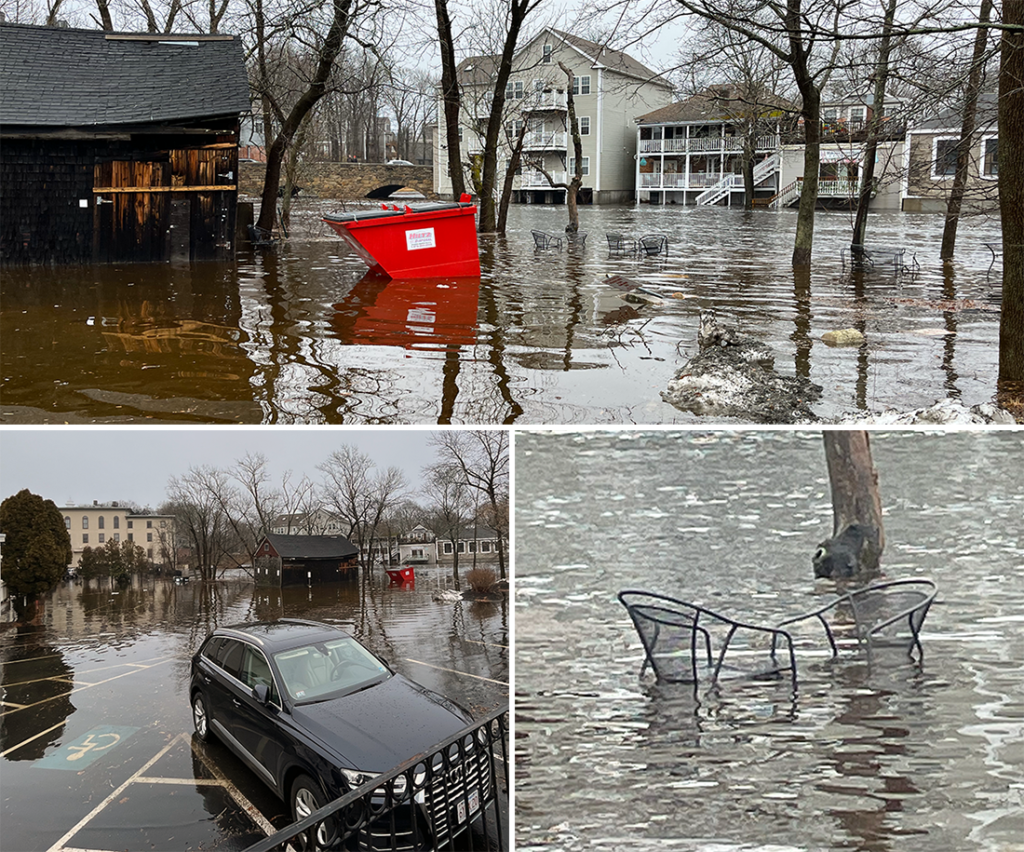Here at Ipswich River Watershed Association (IRWA) we were in awe of mother nature, and the increasingly visible effects of climate change, after the series of snow and rain storms swept across the region in January. Here’s what those storms looked like from our perspective:
Flooding of all types.
Did you know that our region deals with two separate types of flooding? Lucky us!
Inland flooding of rivers and streams occurs when lots of rain or melting snow hits the river all at once and we see water levels rise. After the series of storms we had in January, you probably noticed water levels around the watershed rising. The USGS Ipswich River stream gage topped out at flows measuring 1,620 cubic feet per second (cfs). That’s almost 10 times higher than the typical January flows.
What is IRWA doing about inland flooding? We are working on culvert upgrade projects around the watershed in order to let water flow downstream efficiently and to avoid water backing up behind undersized culverts and overtopping roadways. Our restoration team is in various stages of planning for addressing dozens of undersized culverts around the watershed. We also promote the use of green infrastructure to manage stormwater around the watershed through the Greenscapes Coalition.
Coastal flooding occurs when ocean levels rise, usually a result of storm surge. In our region, we see coastal flooding along ocean front properties, in the salt marshes, and up our rivers as far as the storm surge extends. These most recent storms aligned with the new moon and resulted in record-high high-tides in the Gulf of Maine. This “perfect storm” for storm surge resulted in coastal flooding all the way into downtown Ipswich.
What is IRWA doing about coastal flooding? We are working with our PIE-Rivers Partners to ensure the health of the Great Marsh, the North Shore’s best protection from the devastating effects of storm surge and sea-level rise.
Fun Fact: The Ipswich Mills Dam does not provide any protection from either type of flooding, coastal or inland. Click here to learn more about why that’s true!
Infrastructure risk from storms.
If you were in Ipswich during these storm events, you probably saw the flooding by the town wharf and along Water Street (coastal flooding). You may have also heard that there was a sewer overflow event as the low-lying sewage pump station near the town Wharf was inundated. Sewer overflows are a concerning source of pollution for the Ipswich River. We are lucky they don’t happen often but as sea level rises, that low-lying pump station will increasingly be at risk. The town of Ipswich is already looking at solutions to move some of this critical infrastructure out of harm’s way.
IRWA is always ready to help municipal partners with projects such as these that not only improve the resilience of critical infrastructure but also are critical to protect our valuable river ecosystem!
